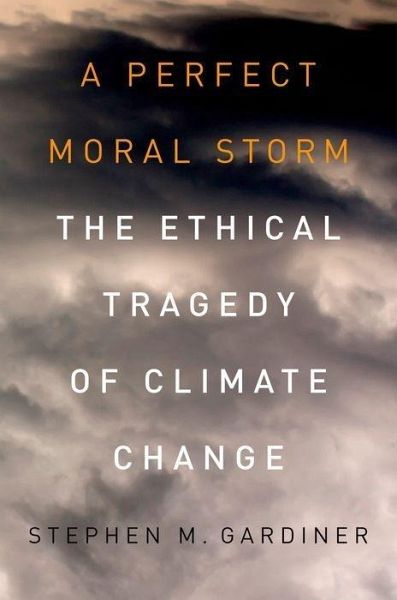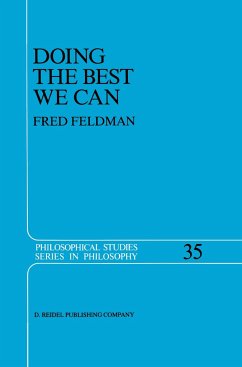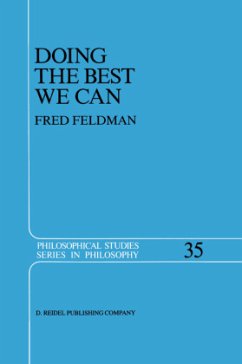
Perfect Moral Storm
The Ethical Tragedy of Climate Change
Versandkostenfrei!
Versandfertig in 1-2 Wochen
90,99 €
inkl. MwSt.

PAYBACK Punkte
45 °P sammeln!
Climate change is arguably the great problem confronting humanity, but we have done little to head off this looming catastrophe. In The Perfect Moral Storm, philosopher Stephen Gardiner illuminates our dangerous inaction by placing the environmental crisis in an entirely new light, considering it as an ethical failure. Gardiner clarifies the moral situation, identifying the temptations (or "storms") that make us vulnerable to a certain kind of corruption. First, the world's most affluent nations are tempted to pass on the cost of climate change to the poorer and weaker citizens of the world. S...
Climate change is arguably the great problem confronting humanity, but we have done little to head off this looming catastrophe. In The Perfect Moral Storm, philosopher Stephen Gardiner illuminates our dangerous inaction by placing the environmental crisis in an entirely new light, considering it as an ethical failure. Gardiner clarifies the moral situation, identifying the temptations (or "storms") that make us vulnerable to a certain kind of corruption. First, the world's most affluent nations are tempted to pass on the cost of climate change to the poorer and weaker citizens of the world. Second, the present generation is tempted to pass the problem on to future generations. Third, our poor grasp of science, international justice, and the human relationship to nature helps to facilitate inaction. As a result, we are engaging in willful self-deception when the lives of future generations, the world's poor, and even the basic fabric of life on the planet is at stake. We should wake up to this profound ethical failure, Gardiner concludes, and demand more of our institutions, our leaders and ourselves. "This is a radical book, both in the sense that it faces extremes and in the sense that it goes to the roots." --Notre Dame Philosophical Reviews "The book's strength lies in Gardiner's success at understanding and clarifying the types of moral issues that climate change raises, which is an important first step toward solutions." --Science Magazine "Gardiner has expertly explored some very instinctual and vitally important considerations which cannot realistically be ignored. --Required reading." --Green Prophet "Gardiner makes a strong case for highlighting and insisting on the ethical dimensions of the climate problem, and his warnings about buck-passing and the dangerous appeal of moral corruptions hit home." --Times Higher Education "Stephen Gardiner takes to a new level our understanding of the moral dimensions of climate change. A Perfect Moral Storm argues convincingly that climate change is the greatest moral challenge our species has ever faced - and that the problem goes even deeper than we think." --Peter Singer, Princeton University












